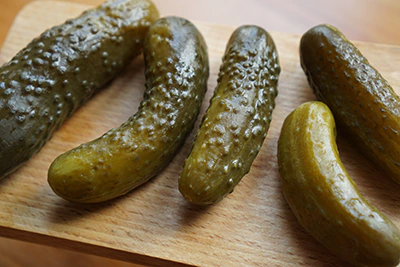| Essence |
Thiodipropionic Acid or E313 is a synthetic organic compound (a thioacid that appears as a white crystalline powder) that typically gets used as an antioxidant to improve shelf life and avoid spoilage of food. Additionally, it can also be used as a polymer stabilizer. It is also used for other industries like cosmetics and plastics. |
| Names |
Thiodi-N-Propionic Acid, Dipropylheptyl Sulfide, Dipropylheptyl Disulfide, Bis(2-Propylheptyl) Disulphide, Dilauryl Thiodipropionate, Bis(2-Propylheptyl) Disulfide, E313, Thiodipropionic Acid, and others. |
| Sourcing |
The starting point is 3-Mercaptopropionic Acid which is a synthetic derivative of Propionic Acid (a fusion of Propionic Acid with a sulfur atom that does not happen naturally and is only possible through chemical synthesis). Propionic Acid is something that can be found in foods like Swiss cheese and Emmental cheese but is also something that is typically discharged by animals and humans through urine and feces. |
| Manufacturing |
The sourcing ingredient (3-Mercaptopropionic Acid) is mixed with acetic anhydride and heated (temperature of about 70-80°C). While heating it is stirred for several hours which makes the substance turn the color either yellow or brown. Then, water is added abundantly to acquire the additive as a solid. This is then filtered, purified, and dried. |
| Application |
Antioxidant (synthetic, decently water-soluble, and alcohol-soluble), preservative, and polymer stabilizer. |
| Acceptable Daily Intake |
Supposedly, amounts of up to 0.5 milligrams on every kilogram of body weight are claimed to be safe. But that feels very void of reality. The substance has been banned in the EU. |
| Side Effects |
It’s likely very toxic for the gastrointestinal tract. It can cause nausea, diarrhea, vomiting, hives, itching, swelling, skin irritation, respiratory irritation, difficulty breathing, coughing, and other negative side effects. |
| Benefits |
None. |
| Studies |
40+ studies on Pubmed. Less than 5 studies on safety. |
| Allergens |
None. |
| Diet Restrictions |
None. |
| Health Knight Assessment |
Likely Seriously Harmful. | Category 5 Additive. |
| Products |
Thiodipropionic Acid (E313) can be found in processed foods like pastries, cakes, bread, sausages, margarine, soft drinks, juices, canned fruits, pickled vegetables, chips, crackers, all kinds of processed meat products, and more. |



